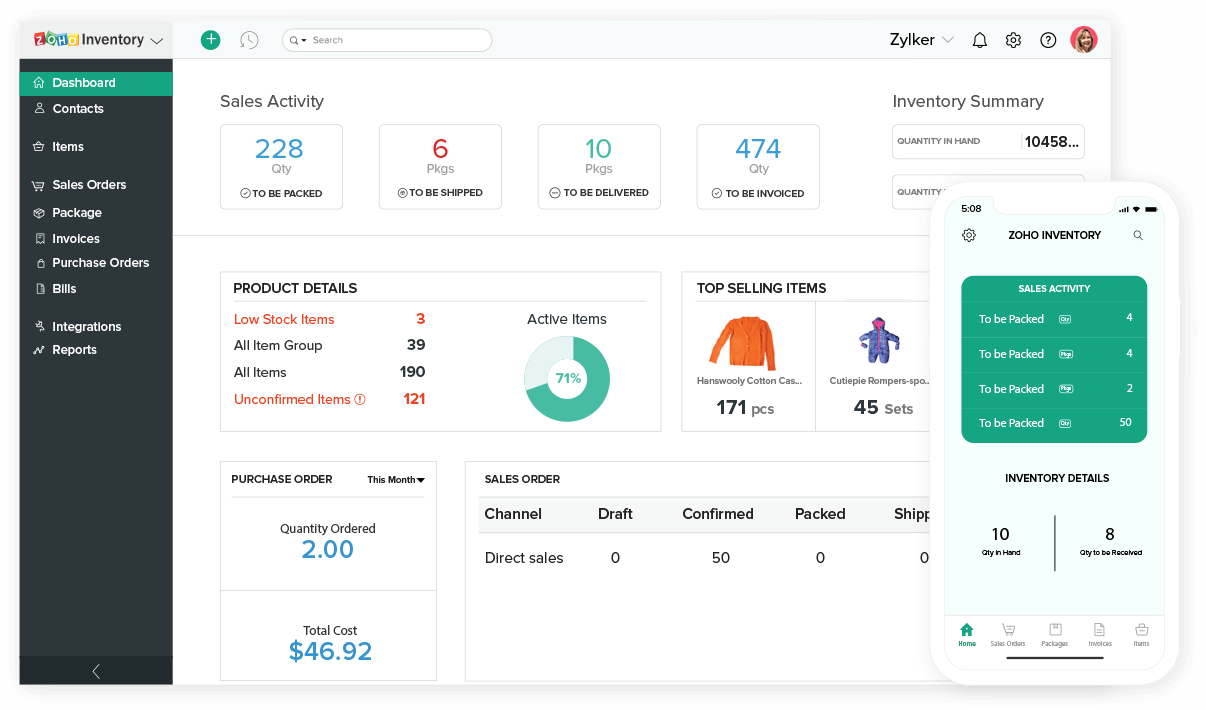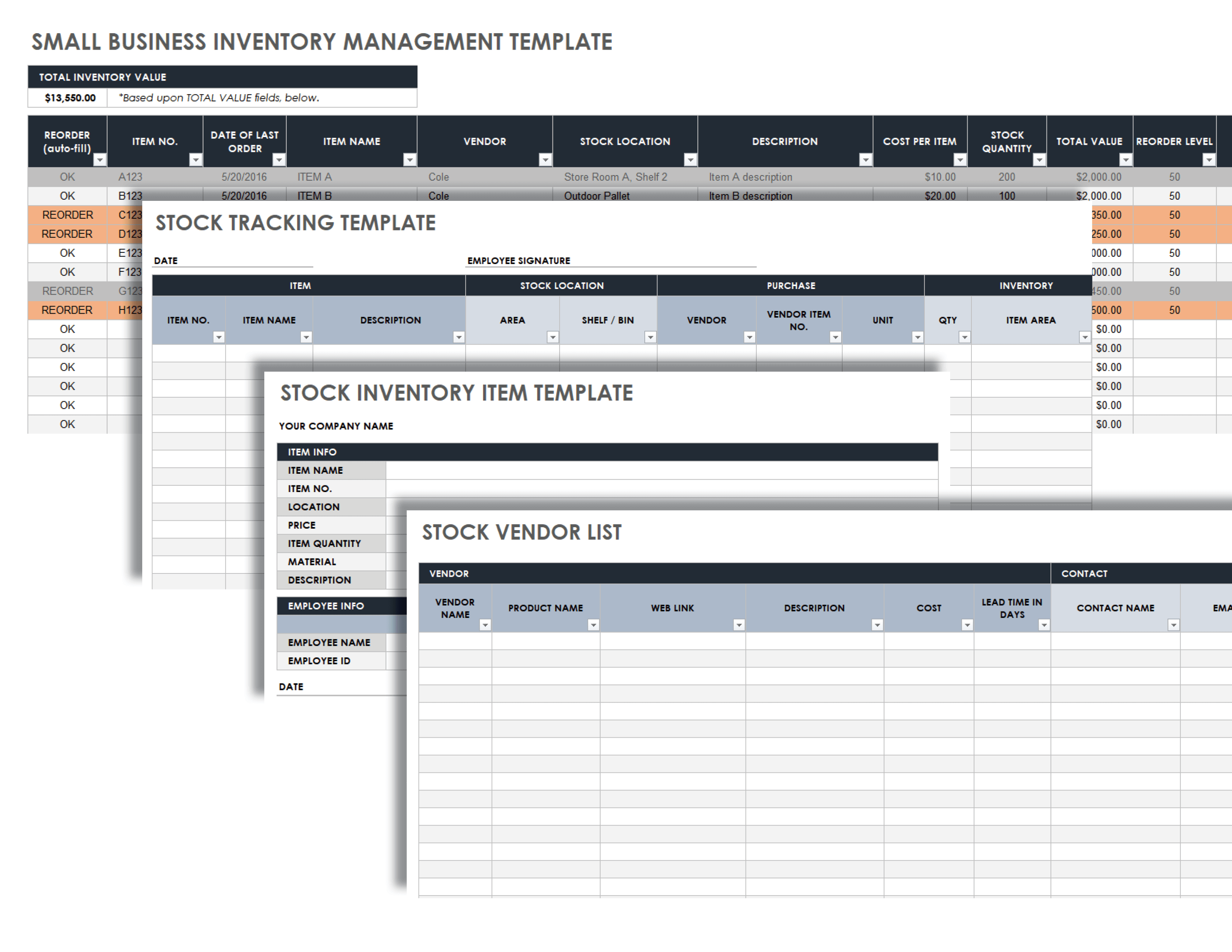Inventory tracking system small business – Inventory tracking systems for small businesses are essential tools that can revolutionize inventory management, streamline operations, and drive profitability. By providing real-time visibility into inventory levels, these systems empower businesses to make informed decisions, reduce costs, and improve customer satisfaction.
In this comprehensive guide, we will explore the benefits of inventory tracking systems, key features to consider when selecting a system, best practices for effective inventory management, and success stories of businesses that have leveraged these systems to achieve remarkable results.
Benefits of Inventory Tracking for Small Businesses

Inventory tracking is essential for small businesses to maintain optimal stock levels, streamline operations, and enhance decision-making. With real-time inventory visibility, businesses can significantly improve efficiency and reduce costs.
Accurate Inventory Data for Enhanced Decision-Making
Accurate inventory data provides valuable insights for making informed decisions. By knowing the exact quantity of items on hand, businesses can avoid overstocking, which ties up cash flow and leads to potential losses due to spoilage or obsolescence. Conversely, they can prevent stockouts, ensuring they have enough inventory to meet customer demand and avoid lost sales.
Automated Inventory Tracking for Streamlined Operations
Automated inventory tracking systems streamline operations and reduce manual errors. They eliminate the need for manual counting and data entry, saving time and reducing the risk of human error. These systems also provide real-time updates on inventory levels, allowing businesses to respond quickly to changes in demand and supply.
Key Features to Consider When Selecting an Inventory Tracking System

When selecting an inventory tracking system for your small business, it is crucial to consider several key features to ensure it aligns with your specific needs and objectives. These features include:
Ease of Use
A user-friendly interface is essential for efficient inventory management. The system should be intuitive and straightforward to navigate, enabling users to quickly learn and operate it without extensive training.
Scalability
As your business grows, your inventory tracking system should be able to scale accordingly. Choose a system that can handle increasing inventory levels and transactions without compromising performance.
Cost-Effectiveness
The cost of an inventory tracking system should align with your budget. Consider both the initial investment and ongoing expenses, such as maintenance and support.
Barcode Scanning and RFID Technology
Barcode scanning and RFID (Radio Frequency Identification) technology can significantly streamline inventory management processes. Barcode scanners allow for quick and accurate data entry, while RFID tags provide real-time tracking and visibility into inventory levels.
Cloud-Based Inventory Systems
Cloud-based inventory systems offer several advantages. They are accessible from multiple devices, allowing you to manage inventory on the go. Additionally, they provide automatic updates and backups, ensuring data security and accessibility.
Implementation and Integration of an Inventory Tracking System: Inventory Tracking System Small Business
Implementing an inventory tracking system in a small business can streamline operations, reduce costs, and improve customer satisfaction. Here’s a step-by-step guide to help you get started:
Start by defining your inventory tracking needs. Consider the types of products you sell, the volume of inventory you typically carry, and the level of detail you require.
Hardware and Software Selection
Select hardware and software that meets your specific needs. Hardware options include barcode scanners, RFID tags, and mobile devices. Software options range from basic spreadsheet-based systems to more comprehensive enterprise resource planning (ERP) solutions.
Data Entry and Management
Establish clear procedures for data entry and management. This includes creating a system for tracking inventory levels, recording transactions, and managing product information.
Staff Training and Adoption
Train your staff on the new system and ensure they understand how to use it effectively. This will help ensure smooth adoption and minimize errors.
Integration with Other Systems, Inventory tracking system small business
Integrate your inventory tracking system with other business applications, such as accounting and sales software. This will allow you to streamline data sharing and improve overall efficiency.
Best Practices for Effective Inventory Management

Maintaining accurate inventory records is crucial for small businesses. Regular audits and cycle counting ensure the accuracy of inventory data, minimizing errors and discrepancies. Establishing safety stock levels prevents stockouts and reduces the risk of lost sales and customer dissatisfaction.
Optimizing Inventory Levels
Optimizing inventory levels is essential for minimizing carrying costs. Techniques such as ABC analysis, just-in-time (JIT) inventory management, and vendor-managed inventory (VMI) can help businesses reduce excess inventory and improve cash flow.
- ABC analysis categorizes inventory items based on their value and usage, allowing businesses to prioritize high-value items for closer monitoring and control.
- JIT inventory management aims to minimize inventory levels by receiving goods only when needed, reducing storage costs and waste.
- VMI allows suppliers to manage inventory levels on behalf of businesses, ensuring optimal stock levels and reducing the burden on internal resources.
Case Studies and Success Stories
Inventory tracking systems have revolutionized the way small businesses manage their stock. Here are a few case studies that demonstrate the benefits and challenges faced by businesses that have implemented these systems.
Improved Efficiency and Reduced Costs
ABC Manufacturing, a small-scale manufacturer, faced challenges with manual inventory management. They often experienced stockouts and overstocking, leading to lost sales and wasted resources. After implementing an inventory tracking system, ABC Manufacturing streamlined its inventory processes, reduced stockouts by 25%, and lowered inventory holding costs by 15%.
Increased Profitability
XYZ Retail, a small retail store, struggled with managing its inventory across multiple locations. They often faced stockouts in high-demand items and overstocking in slow-moving products. By implementing an inventory tracking system, XYZ Retail gained real-time visibility into its inventory levels, optimized its stock levels, and increased its profit margin by 10%.
Overcoming Challenges
While inventory tracking systems offer numerous benefits, small businesses may face challenges during implementation.* Data accuracy:Ensuring the accuracy of inventory data is crucial for effective inventory management. Businesses must establish clear processes for data entry and verification.
Integration with other systems
Inventory tracking systems should be integrated with other business systems, such as accounting and sales, to ensure data consistency and streamline operations.
Training and adoption
Proper training and support are essential for successful adoption of inventory tracking systems. Businesses should provide comprehensive training to their staff to ensure they understand the system’s functionality and benefits.
Ultimate Conclusion
Implementing an inventory tracking system is a strategic investment that can transform your small business. With the right system in place, you can gain complete control over your inventory, optimize stock levels, reduce waste, and ultimately increase profitability. Embrace the power of inventory tracking and unlock the potential for growth and success.
Frequently Asked Questions
What are the key benefits of using an inventory tracking system for small businesses?
Inventory tracking systems provide real-time visibility into inventory levels, enabling businesses to optimize stock levels, reduce overstocking and stockouts, and streamline operations.
What are some essential features to consider when selecting an inventory tracking system?
Ease of use, scalability, cost-effectiveness, barcode scanning and RFID technology, and cloud-based accessibility are crucial features to evaluate.
How can I ensure a smooth implementation of an inventory tracking system in my small business?
Proper staff training, integration with other business applications, and regular audits and cycle counting are essential for successful implementation.